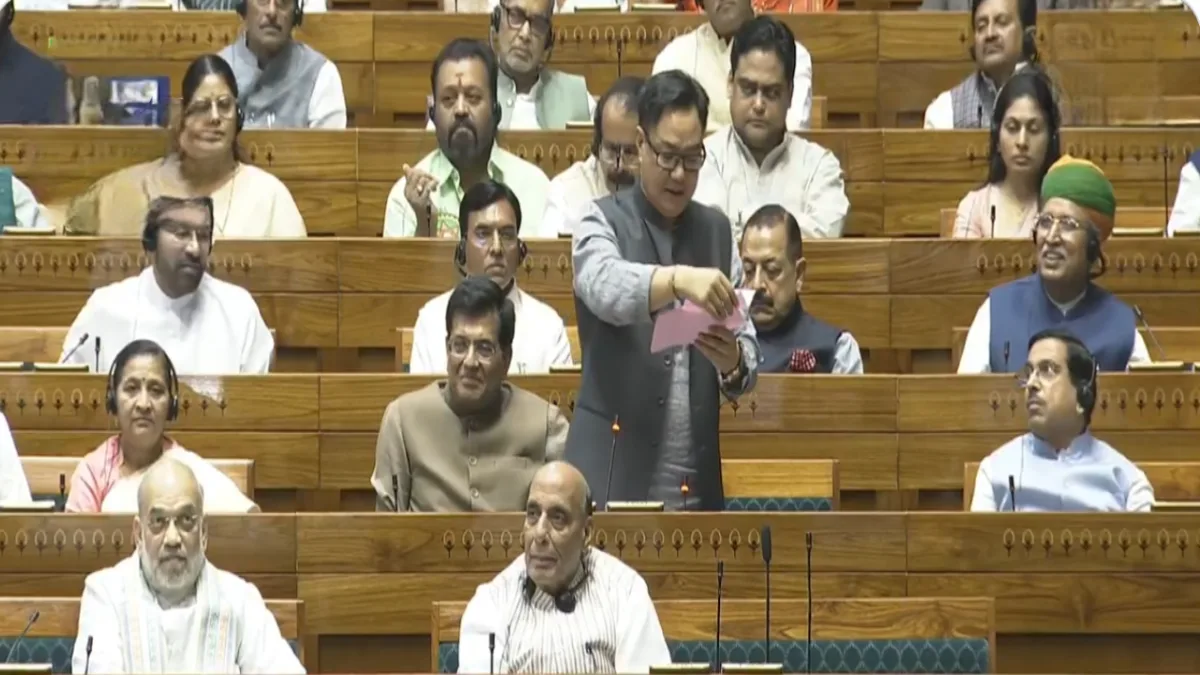
In an effective step towards inclusivity, the w led by Parliamentary Affairs Minister Kiren Rijiju, has introduced the Waqf Amendment Bill in the Lok Sabha.
This legislation aims to diversify the representation on the Waqf Board, ensuring that various communities, including Shia, Sunni, Bohra, and backward Muslims, along with women and expert Non-Muslims, have a voice in its decision-making processes.
Kiren Rijiju Outlines Diversity in Waqf Board with New Amendment
During his presentation of the bill, Rijiju emphasized the importance of expanded representation. “Now Shia, Sunni, Bohra, backward Muslims, women, and expert Non-Muslims will also be there in the Waqf Board,” he stated. This shift is designed to ensure that the Waqf system reflects the diversity of India’s Muslim communities and promotes broader minority involvement.
Moreover, Rijiju shared his own experience to illustrate the new structure. “Suppose I am not a Muslim but I am the Minority Affairs Minister. Then I become Chairman of the Central Waqf Council. Despite my position, there can be a maximum of four Non-Muslim members in the Council, and among them, two women members are compulsory,” he noted. This requirement aims to foster both gender balance and representation from the non-Muslim community.
Government Introduces Waqf Amendment Bill to Broaden Board Membership
The proposed changes in the Waqf Amendment Bill aim to create a more equitable framework for how waqf properties—charitable endowments—are managed in India. By allowing Non-Muslims, particularly experts in relevant fields, to participate in the Waqf Council, the government hopes to enhance transparency and efficiency.
#WATCH | After introducing the Waqf Amendment Bill in Lok Sabha, Parliamentary Affairs Minister Kiren Rijiju says "Now Shia, Sunni, Bohra, backward Muslims, women, and expert Non-Muslims will also be there in Waqf Board. Let me elaborate in detail. I'll give my own example.… pic.twitter.com/b1uv7P6yTM
— ANI (@ANI) April 2, 2025
Rijiju reiterated the importance of collaboration, stating that diverse perspectives could lead to more effective governance of these properties. “This inclusion is not just about numbers,” he explained, “but about enriching discussions and outcomes that benefit all communities involved.”
Waqf Council Expansion: Non-Muslims and Women Gain Representation
Additionally, the Waqf Amendment Bill envisions a systematic reform that prioritizes representation. By mandating at least two female members among the Non-Muslim councilors, the bill takes a proactive approach to support women’s involvement in community leadership roles. This change reflects a growing recognition of the role women play in societal development.
The integration of various communities into the Waqf Board could pave the way for more equitable distribution and management of resources allocated to minority groups. Through these reforms, the Indian government aims to strengthen social cohesion by ensuring that all voices are heard.
Kiren Rijiju Advocates for Greater Minority Inclusion in Waqf Governance
In conclusion, the introduction of the Waqf Amendment Bill marks a pivotal moment in the governance of waqf properties in India. With its focus on inclusion and representation, the bill represents a step towards a more collaborative and equitable framework for managing resources that support minority communities. As Rijiju pointed out, “This initiative is essential for fostering a sense of belonging and participation among all individuals, regardless of their background.”

